In the ever-evolving landscape of business intelligence, conducting effective market research has become more crucial than ever. As companies strive to stay ahead of the curve and meet customer expectations, artificial intelligence has emerged as a game-changer in the field of market research. This comprehensive guide will explore the top 14 AI market research tools of 2024, helping you choose the right solution to supercharge your research efforts and gain a competitive edge.
Why Use AI for Market Research?
Artificial intelligence has become an indispensable tool for market researchers, and it’s improving by the day. Let’s explore the key reasons why AI is transforming the landscape of market research:
Unparalleled Efficiency
AI automates time-consuming tasks that traditionally require significant human effort. From data collection to initial analysis, AI tools can process vast amounts of information in a fraction of the time it would take a human researcher. This newfound efficiency allows market research teams to focus on higher-value activities such as strategy development and insight interpretation.
Advanced Data Processing Capabilities
The sheer volume of data available today can be overwhelming for human analysts. AI excels at processing and analyzing large datasets, uncovering patterns, trends, and correlations that might be missed by even the most experienced researchers. This capability enables businesses to gain a more comprehensive understanding of their market and customers.
Real-time Insights for Agile Decision Making
In the digital age, market conditions can change rapidly. AI-powered tools offer real-time data collection and analysis, enabling businesses to make informed decisions quickly. This agility is crucial for staying ahead of competitors and adapting to changing customer expectations.
By leveraging these AI capabilities, businesses can conduct more comprehensive, accurate, and timely market research. This not only improves the quality of insights but also enables companies to be more responsive to market changes and customer needs. As we explore the top AI market research tools of 2024, keep these benefits in mind to understand how each tool can enhance your research capabilities and drive your business forward.
Top AI Market Research Tools in 2024
1. Prelaunch
This AI market research tool offers several key features to enhance your product development process. Prelaunch allows you to gather early-stage product feedback through reliable customer insights, helping you understand what potential users really think. The tool also enables you to identify future customer clusters, ensuring you target the right audience. Additionally, it provides the capability to validate your product through A/B testing, including price variations, allowing for data-driven decisions. You can also conduct in-depth interviews and leverage AI to summarize the results, providing you with comprehensive insights to refine your product strategy.
Pros:
- Gives you clear data-driven insights for go/no-go decisions
- Reduces risk of product failure
- Lets you run pre-market tests before investing heavily in production
- Simple setup for tests
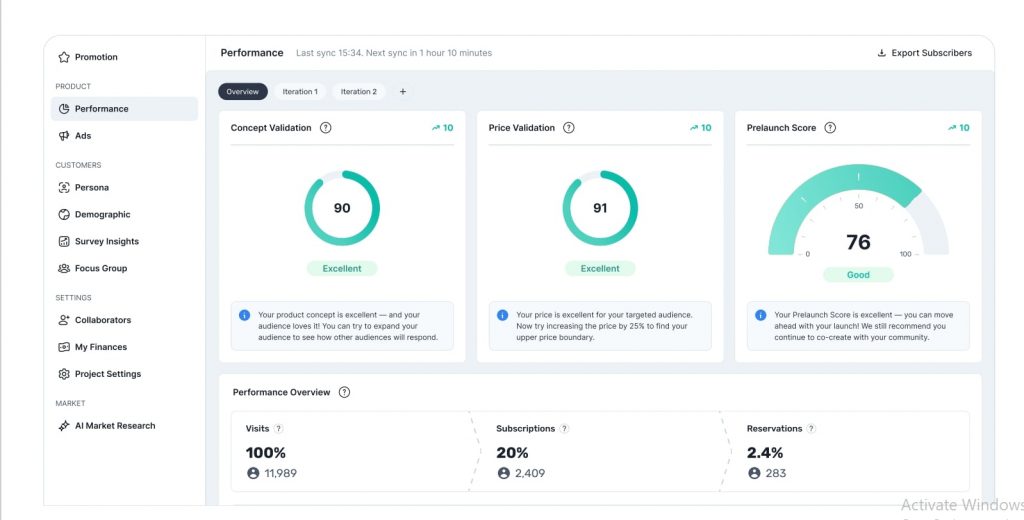
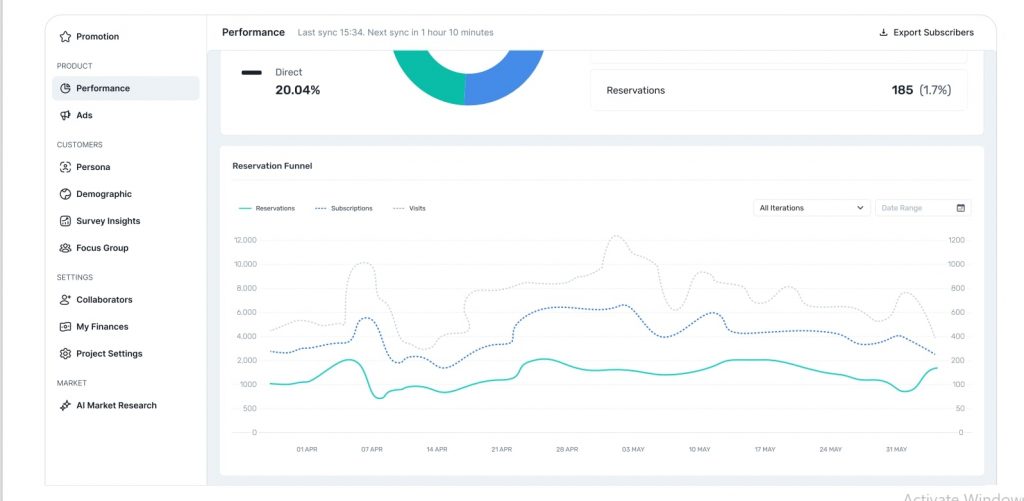
Cons:
- Limited to product launches
- Not suitable for secondary market research
Pricing:
- Ultimate: $996/month
- Starter: $250/month
- Pro: $538/month
2. Qualtrics XM
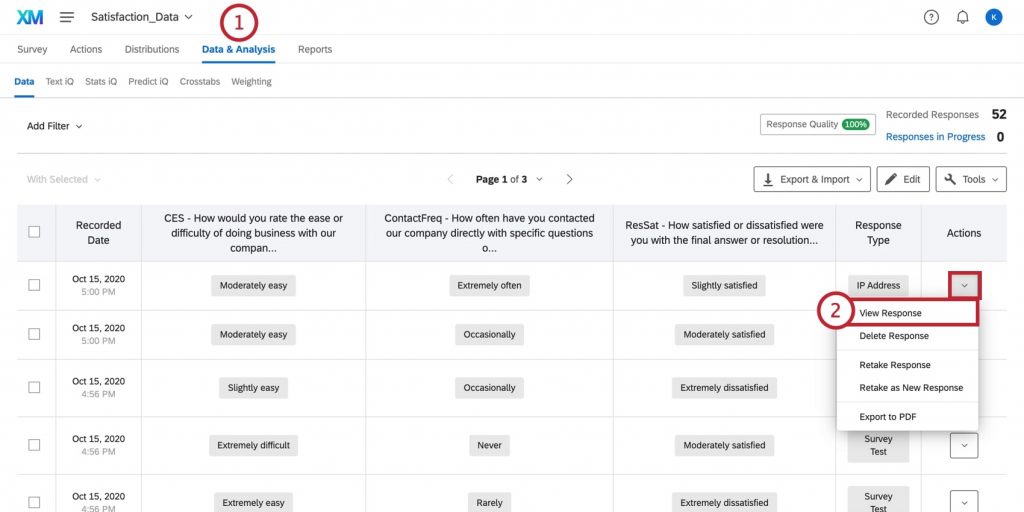
Qualitrics offers key features that include extensive experience management across customer, employee, product, and brand areas. It integrates feedback and brand tracking seamlessly while providing flexible survey tools suited for various research types. Additionally, it offers robust support for multiple touchpoints throughout customer journeys.
Pros:
- Comprehensive platform for experience management
- Detailed and intuitive dashboards
- Flexible for a variety of use cases
Cons:
- High learning curve
- Expensive for smaller businesses
Pricing:
- Starts at $1,500 annually (varies based on features)
3. Remesh
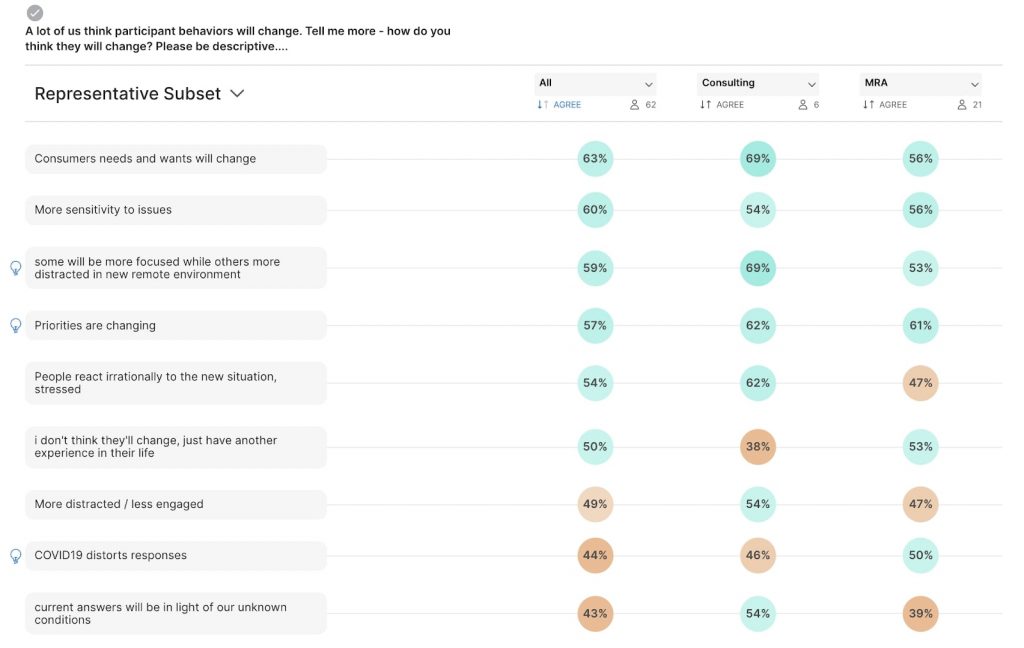
Remesh offers several key features, including live conversations with respondents in real-time, enabling scalable qualitative research through group engagement. It facilitates interactive sessions with respondents to gain immediate insights and provides the ability to conduct qualitative research on a large scale.
Pros:
- Excellent for qualitative insights
- Quick turnaround for feedback
- Engaging real-time audience interaction
Cons:
- Limited quantitative data collection
- Requires facilitation during sessions
Pricing:
- Custom pricing based on usage
4. Crayon
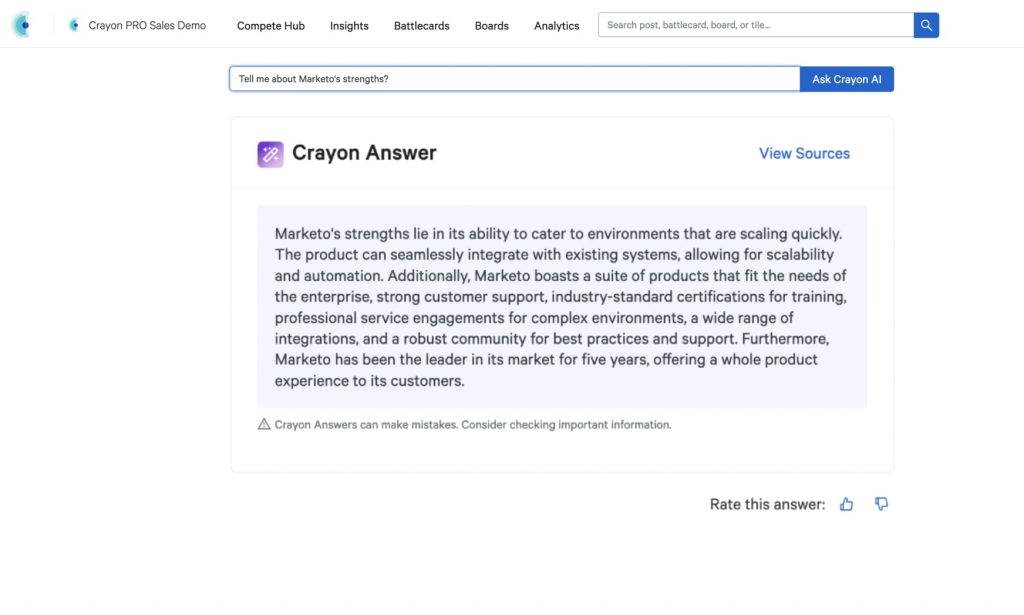
Crayon provides businesses with the ability to track their competitors’ moves across digital and traditional channels. It aggregates data from multiple sources, such as social media, news, and the web, and delivers alerts on significant competitor actions. This comprehensive approach ensures that users stay informed and can make strategic decisions based on the latest competitive insights.
Pros:
- Robust competitor tracking
- Detailed reports on market shifts
- Integrates competitive data across multiple channels
Cons:
- Narrow focus on competition
- Lacks general market research tools
Pricing:
- Starter: $500/month
- Standard: $1,000/month
- Enterprise: Custom pricing
5. Zoho Survey
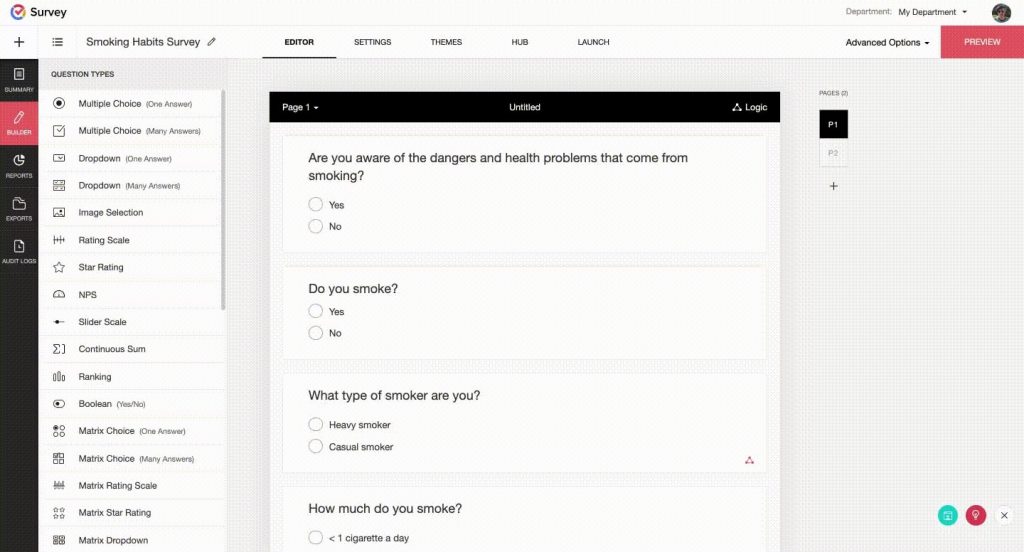
Zoho Survey offers a variety of key features, including simple online survey creation with drag-and-drop capabilities and customizable templates. It provides real-time reports and analytics to help users gain insights quickly. Additionally, Zoho Survey integrates with other Zoho tools for a seamless user experience.
Pros:
- Affordable for small businesses
- Easy-to-use interface
- Strong integrations within Zoho’s ecosystem
Cons:
- Lacks advanced features for large-scale research
- Limited analytics compared to premium platforms
Pricing:
- Free plan available
- Plus: $25/month
- Pro: $35/month
- Enterprise: $75/month
6. Gong
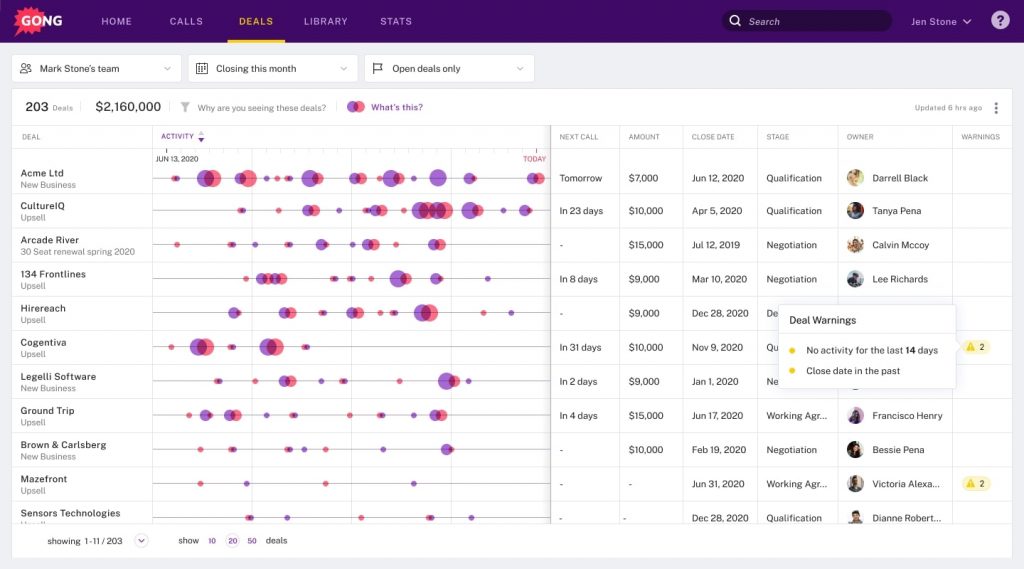
The platform offers key features such as revenue intelligence with a focus on sales. Gong records and analyzes customer interactions, like sales calls, and provides valuable insights into customer behavior and deal outcomes. Additionally, it emphasizes improving the performance of sales teams.
Pros:
- Great tool for sales teams
- Provides detailed insights into customer conversations
- Enhances sales forecasting accuracy
Cons:
- Focused mainly on sales; not suitable for broad market research
- Can be complex for new users
Pricing:
- Custom pricing based on team size and needs
7. Brandwatch
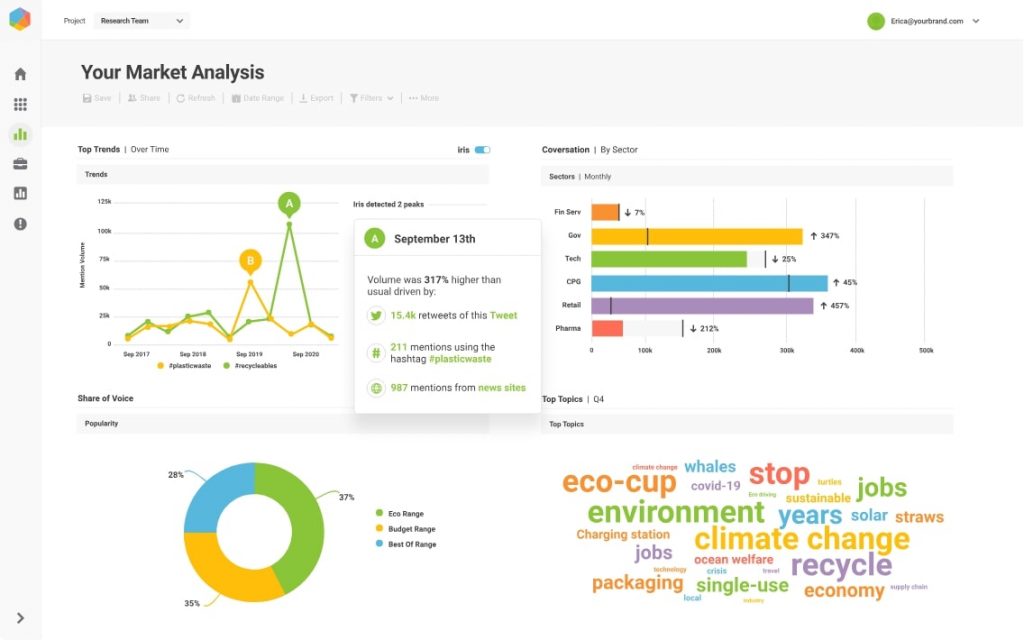
BrandWatch offers key features that enhance brand management and competitive analysis. It includes social media monitoring and brand perception analysis, providing businesses with insights into how their brand is viewed across platforms. In-depth competitor intelligence reports offer valuable knowledge about market positioning and strategies. Real-time tracking of brand mentions and conversations keeps companies informed of relevant discussions as they happen. Additionally, advanced audience segmentation and filtering allow for more targeted and effective marketing efforts.
Pros:
- Strong social listening capabilities
- Powerful audience insights
- Flexible segmentation tools
Cons:
- Expensive for smaller businesses
- Complex for new users
Pricing:
- Starts at $1,000 per month (varies based on features)
8. Audiense
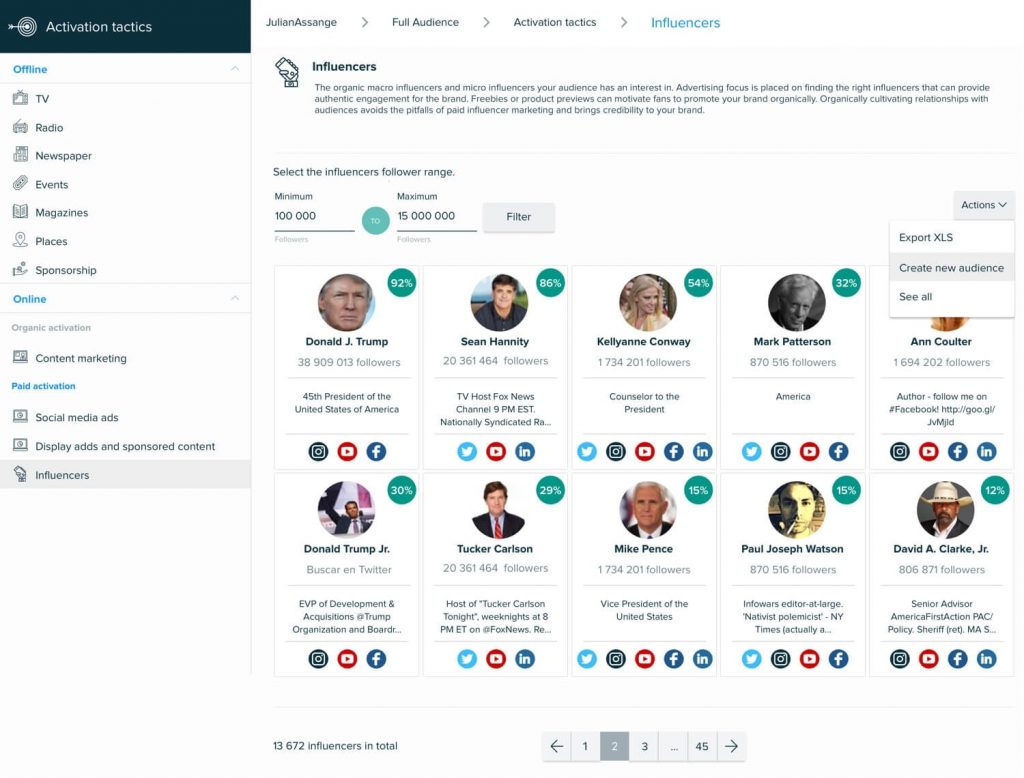
Audiense offers a range of key features designed to enhance social media marketing efforts. It includes audience segmentation tools specifically tailored for social media, allowing for more precise targeting. Additionally, it provides social media monitoring and influencer analysis to help understand and leverage online influence effectively. With detailed demographic insights, marketers can achieve more targeted campaigns. Furthermore, the platform integrates seamlessly with major social media platforms, ensuring a comprehensive and efficient marketing experience.
Pros:
- Excellent for social media-driven campaigns
- Strong audience segmentation capabilities
- Easy to use
Cons:
- Limited functionality outside of social media marketing
- Can be costly for small businesses
Pricing:
- Starter: $696/month
- Plus: $1,296/month
- Enterprise: Custom pricing
9. Semrush .Trends
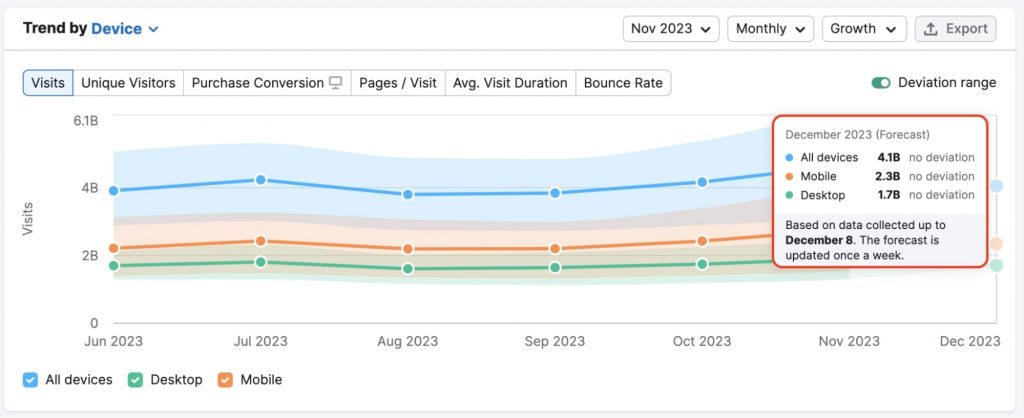
Semrush .Trends offers several key features, including competitor traffic analysis and benchmarking, allowing users to gain insights into market trends for comprehensive industry overviews. It provides the ability to track competitors’ SEO and marketing strategies, offering valuable data for digital marketers.
Pros:
- Ideal for competitive intelligence in digital marketing
- Detailed SEO and advertising insights
- Broad coverage of industry trends
Cons:
- Focused on digital marketing research
- Expensive for smaller teams
Pricing:
- Included in Semrush Business ($449.95/month) and higher plans
10. Zappi
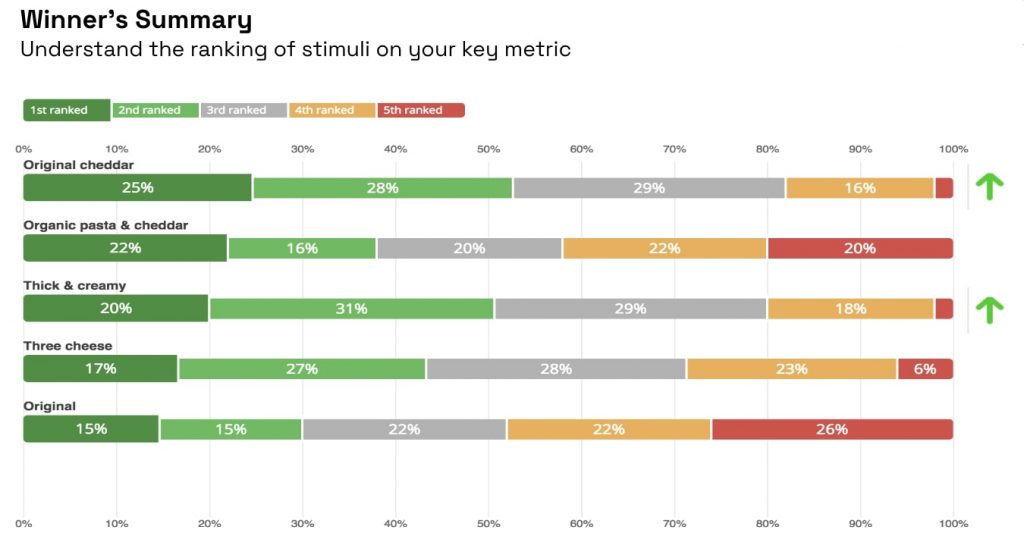
Zappi provides key features including a concept, pack, and advertisement testing platform designed for comprehensive consumer insights. With a global panel reach, it enables effective creative testing and rapid feedback collection. The focus is on testing consumer-facing products thoroughly before launch to ensure success in the market.
Pros:
- Excellent for creative testing
- Fast feedback from global panels
- Intuitive platform
Cons:
- Limited to creative testing
- Lacks broader market research capabilities
Pricing:
- Custom pricing based on needs
11. Attest
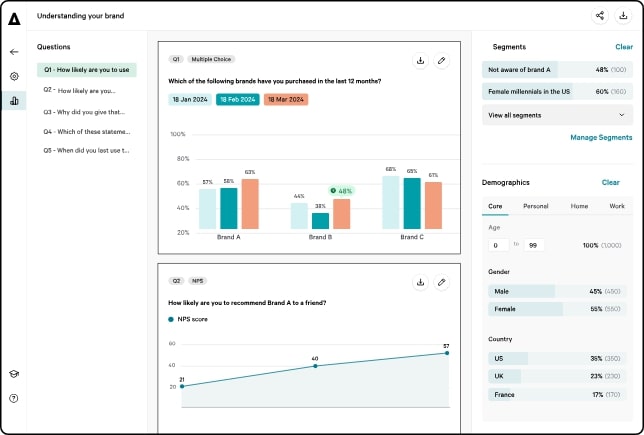
Attest offers a global survey tool with access to a diverse pool of respondents, allowing users to gather comprehensive insights. It features customizable survey creation tools, enabling tailored surveys to suit specific research needs. With its ability to provide valuable insights and recommendations, it supports informed product development. Users benefit from real-time results and reporting, facilitating timely analysis and decision-making.
Pros:
- Fast and easy survey deployment
- Large respondent pool
- User-friendly interface
Cons:
- Limited customization for advanced researchers
- Expensive for startups and small teams
Pricing:
- Pay-as-you-go option available
- Custom pricing for regular users
12. Talkwalker
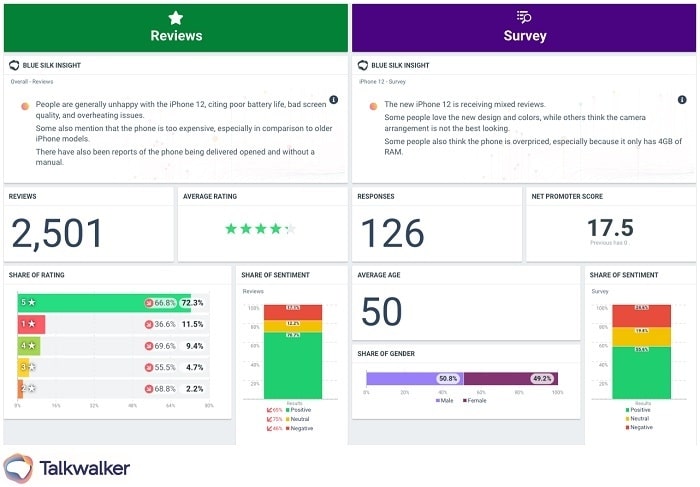
Talkwalker offers a robust suite of key features including social media analytics and brand tracking, allowing users to gain insights into their brand’s online presence. It provides sentiment analysis and competitive intelligence, empowering businesses to understand industry dynamics and consumer perceptions. With real-time monitoring of global brand mentions, users can stay informed of any developments affecting their brand. Additionally, Talkwalker delivers customized reports and data visualizations to tailor insights to specific business needs.
Pros:
- Strong social listening tools
- Customizable reporting features
- Excellent for brand and campaign monitoring
Cons:
- Expensive, especially for smaller companies
- Limited for traditional market research
Pricing:
- Basic: $9,600/year
- Corporate: $22,800/year
- Enterprise: Custom pricing
13. Latana
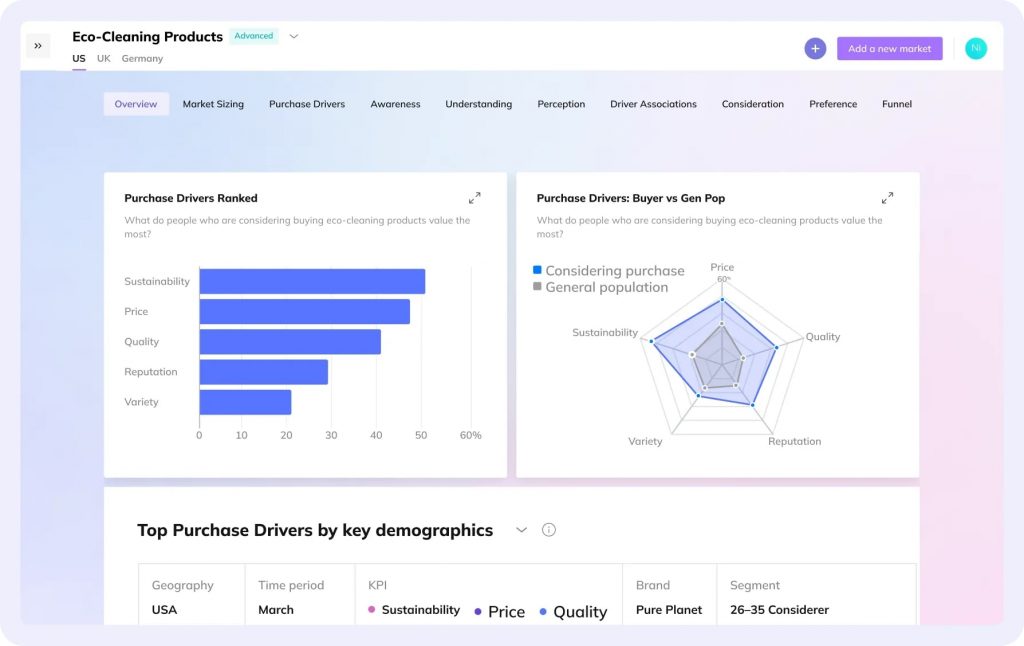
Latana is a tool that offers key features including brand tracking with insights on brand growth metrics. It focuses on consumer insights and behavior patterns, providing data-driven recommendations for marketing strategies. Additionally, it includes simplified reporting tools for tracking brand health over time.
Pros:
- Great for brand performance tracking
- Easy-to-navigate interface
- Actionable insights for brand marketing
Cons:
- Limited to brand tracking
- Not suited for comprehensive market research
Pricing:
- Starter: $5,000/year
- Growth: $15,000/year
- Enterprise: Custom pricing
14. Quid
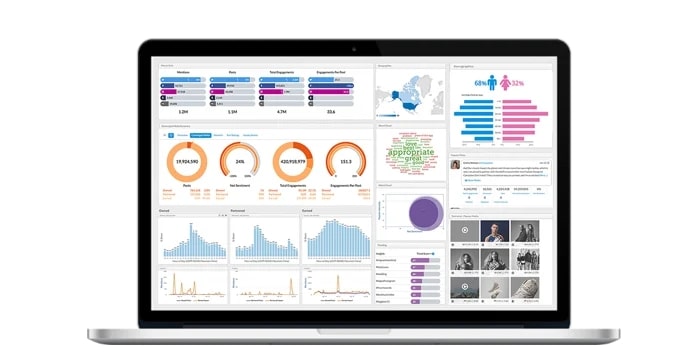
Quid offers network analysis from various data sources such as news and blogs, providing valuable insights. It includes data visualization tools designed to uncover trends and patterns, making it useful for competitive intelligence and market landscape mapping. By focusing on connecting data points, NetInsight reveals important relationships within the data.
Pros:
- Advanced visualization capabilities
- Excellent for large-scale data analytics
- Ideal for deep, complex data insights
Cons:
- Steep learning curve
- Can be expensive for smaller businesses
Pricing:
- Custom pricing based on needs
How to Choose the Right AI Market Research Tool
Selecting the perfect AI market research tool for your needs can be challenging. Here are some factors to consider:
Research Objectives
Clearly define your specific research goals and choose a tool that aligns perfectly with these objectives. Understanding what you aim to achieve will help in selecting the most suitable tool for your needs.
Budget
Carefully consider your financial constraints and evaluate the potential return on investment (ROI) that the tool can provide. It’s important to balance cost with the features you need to achieve your research goals.
Ease of Use
Look for tools that offer intuitive interfaces, particularly if your team lacks technical expertise. A user-friendly tool can significantly reduce the learning curve, making it easier for your team to adopt and use effectively.
Integration
Ensure the tool can seamlessly integrate with your existing software ecosystem. This compatibility will streamline workflows and enhance productivity by allowing data to flow effortlessly across platforms.
Data Sources
Verify whether the tool can analyze data from the sources most relevant to your research. The ability to connect with these key data points is crucial for obtaining accurate and meaningful insights.
Scalability
Opt for a tool that can grow in tandem with your business and research needs. Scalability ensures that the tool remains useful and effective as your project or organization expands.
Support and Training
Consider the level of customer support and training offered by the tool provider. Adequate support and training are vital for maximizing the tool’s benefits and overcoming any challenges that may arise.
AI Capabilities
Evaluate the depth and breadth of AI features offered by each tool. Advanced AI capabilities can greatly enhance the tool’s effectiveness, providing smarter insights and automating complex processes.
Data Privacy and Security
Ensure the tool complies with relevant data protection regulations. Prioritizing data privacy and security safeguards sensitive information and builds trust with stakeholders.
Trial Period
Make use of available free trials to thoroughly test the tool’s functionality and determine its suitability for your specific needs. A trial period allows you to explore the tool’s features and ensure it aligns with your objectives before making a commitment.
Conclusion
In 2024, AI-powered tools are essential for gaining a competitive edge in market research. They revolutionize our understanding of markets and consumer behavior through automated surveys, predictive analytics, and real-time insights, saving time and improving accuracy. Whether you’re a startup or a large corporation, choose tools that align with your research objectives.
Remember, AI augments human expertise. By letting AI handle data processing, researchers can focus on interpreting results and crafting growth strategies. Stay curious and adaptable to remain at the forefront of market research innovation.




